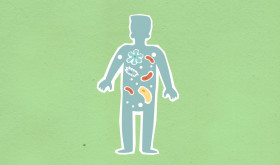
Colorectal cancer is another name for bowel cancer. The big gut, which consists of the colon and rectum, is affected.
Your body’s cells typically divide and expand in a controlled manner. Cells alter and have the potential to expand out of control when cancer develops.
The majority of bowel malignancies are caused by precancerous growths known as polyps. However, not all polyps turn cancerous. If your doctor discovers any polyps, they can be removed to stop them from developing into cancer.
It’s possible for cancer cells to remain in the colon or for them to spread to organs like the liver or lungs.
Information about bowel cancer
You can only get a broad notion of how bowel cancer affects the UK population from these figures. They are unable to predict your future because it depends on a variety of factors, including the treatment you receive. Your doctor or medical staff can provide you with further information about your unique circumstances and how these figures might apply to you.
How common is bowel cancer?
In the UK, bowel cancer is the second-leading cause of cancer death and the fourth most frequent disease overall.
Bowel cancer is a disease that affects up to 43,000 people in the UK each year.
Bowel cancer has been identified in about 268,000 persons living in the UK today.
Nearly six out of ten (59%) new cases are diagnosed in patients who are 70 years of age or older, accounting for 94% of all new cases. But anyone, regardless of age, can develop bowel cancer. Each year, more than 2,600 new cases in adults under 50 are diagnosed.
Bowel cancer will be discovered in 1 in 15 men and 1 in 18 women throughout their lifetime.
How many people survive bowel cancer?
When detected early, bowel cancer is particularly treatable and curative. If bowel cancer is detected early on, nearly everyone survives. However, when the illness worsens, this decreases considerably. Early detection actually saves lives.
Bowel cancer claims the lives of more than 16,500 people in the UK each year. In the UK, it is the second leading cause of cancer death. But since the 1970s, the number of bowel cancer fatalities has decreased. This could be as a result of earlier diagnosis and better care.















